
Batibou Beach: Dominica's Pristine Paradise
Nestled on the northeast coast of Dominica, Batibou Beach is a hidden gem that promises tranquility and natural beauty. This secluded beach is framed by lush tropical forests and offers a serene escape from the hustle and bustle of daily life. The clear turquoise waters and soft golden sands create an idyllic setting for relaxation and rejuvenation. Visitors to Batibou Beach will be enchanted by its untouched charm and pristine environment. The beach is relatively undeveloped, allowing nature to take center stage. Palm trees sway gently in the breeze, and the sound of waves crashing against the shore provides a soothing soundtrack to your visit. Batibou Beach is perfect for swimming, sunbathing, and picnicking. The waters are calm and inviting, making it an ideal spot for families and solo travelers alike. Snorkeling enthusiasts will also find delight in exploring the underwater world teeming with vibrant marine life. For those who enjoy a bit of adventure, a short hike through the surrounding forest will reveal stunning views and hidden treasures.
Local tips in Batibou Beach
- Bring your own snacks and drinks as there are limited facilities on the beach.
- Wear comfortable shoes if you plan to explore the surrounding forest trails.
- Visit early in the day to enjoy the beach in its most peaceful state.
- Remember to carry sunscreen and insect repellent to protect yourself from the sun and bugs.
Batibou Beach: Dominica's Pristine Paradise
Nestled on the northeast coast of Dominica, Batibou Beach is a hidden gem that promises tranquility and natural beauty. This secluded beach is framed by lush tropical forests and offers a serene escape from the hustle and bustle of daily life. The clear turquoise waters and soft golden sands create an idyllic setting for relaxation and rejuvenation. Visitors to Batibou Beach will be enchanted by its untouched charm and pristine environment. The beach is relatively undeveloped, allowing nature to take center stage. Palm trees sway gently in the breeze, and the sound of waves crashing against the shore provides a soothing soundtrack to your visit. Batibou Beach is perfect for swimming, sunbathing, and picnicking. The waters are calm and inviting, making it an ideal spot for families and solo travelers alike. Snorkeling enthusiasts will also find delight in exploring the underwater world teeming with vibrant marine life. For those who enjoy a bit of adventure, a short hike through the surrounding forest will reveal stunning views and hidden treasures.
When is the best time to go to Batibou Beach?
Iconic landmarks you can’t miss
Emerald Pool
Discover Dominica's Emerald Pool: A stunning waterfall & emerald-green pool nestled in lush rainforest. Perfect for a refreshing swim & nature immersion.
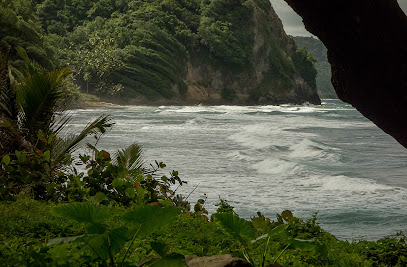
Trafalgar Falls
Experience the majestic Trafalgar Falls in Dominica: a captivating twin waterfall spectacle amidst lush rainforest, offering accessible beauty and adventurous exploration.
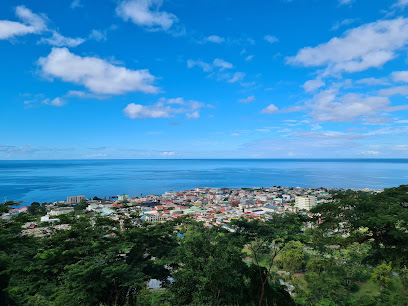
Titou Gorge
Swim through a volcanic gorge to a hidden waterfall in Dominica's stunning Morne Trois Pitons National Park. A Caribbean adventure like no other.
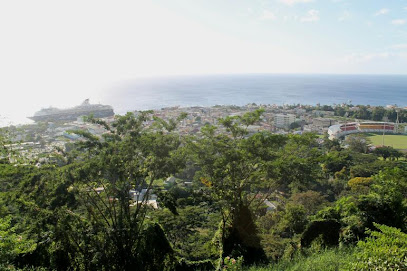
Mero beach
Discover Mero Beach, Dominica: a unique black sand paradise where volcanic beauty meets Caribbean charm. Relax, explore, and immerse yourself in the island's vibrant culture.
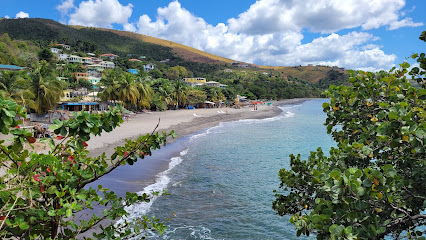
Champagne Reef, Dominica
Snorkel or dive in Dominica's Champagne Reef, where volcanic bubbles meet vibrant marine life in a unique underwater experience.
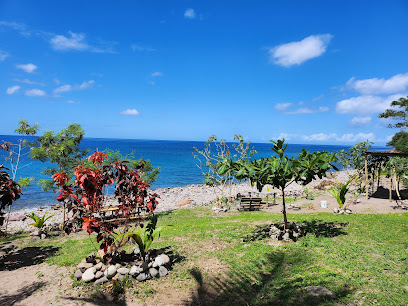
Cabrits National Park
Explore Dominica's natural beauty and colonial history at Cabrits National Park: hiking trails, coral reefs, and the iconic Fort Shirley await!
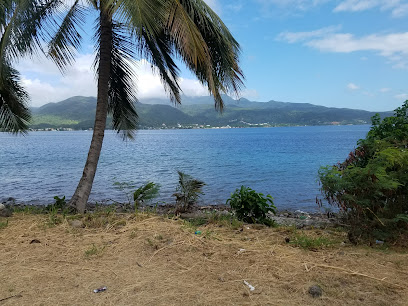
Fort Shirley
Discover Dominica's Fort Shirley: a historic fortress offering stunning views and a glimpse into the Caribbean's colonial past.
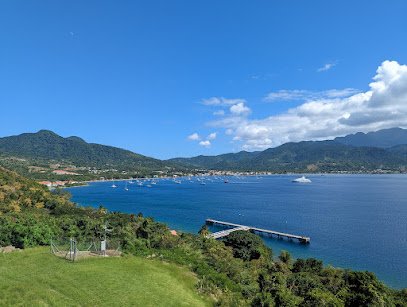
Kalinago Barana Aute
Discover the rich culture and traditions of Dominica's Kalinago people at this living cultural center, showcasing their history, crafts, and way of life.
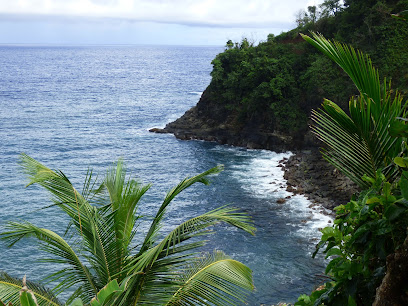
Morne Trois Pitons National Park
Explore Dominica's UNESCO-listed Morne Trois Pitons National Park: Volcanoes, rainforests, and geothermal wonders await!
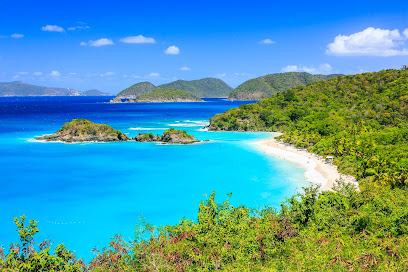
Red Rocks
Explore Dominica's Red Rocks: A stunning coastal landscape sculpted by volcanic activity, offering breathtaking views and natural beauty.
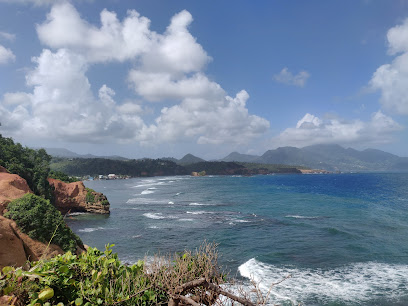
Bubble Beach Spa
Experience Dominica's natural hot springs at Bubble Beach Spa: a unique geothermal oasis with therapeutic waters and stunning coastal views.
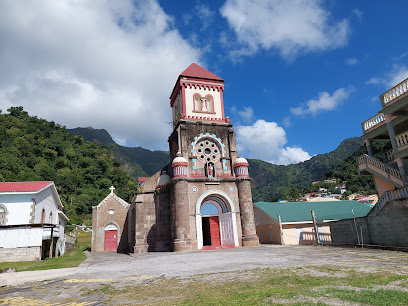
Spanny Falls
Discover the unspoiled beauty of Spanny Falls near Marigot, Dominica: a tranquil rainforest escape with refreshing pools and cascading waterfalls.
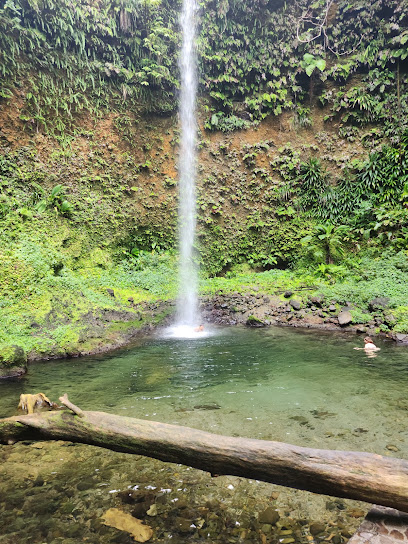
Chaudiere Pool
Discover Dominica's hidden oasis: Chaudiere Pool, a natural wonder offering tranquil waters, scenic hikes, and a refreshing escape in a lush rainforest.
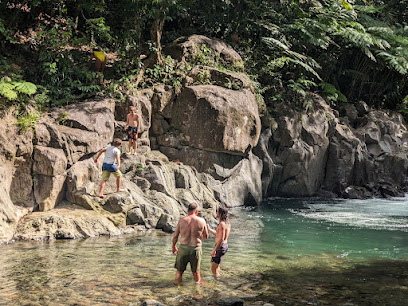
Middleham Falls Dominica
Hike through Dominica's lush rainforest to witness the breathtaking Middleham Falls, a hidden gem within Morne Trois Pitons National Park.
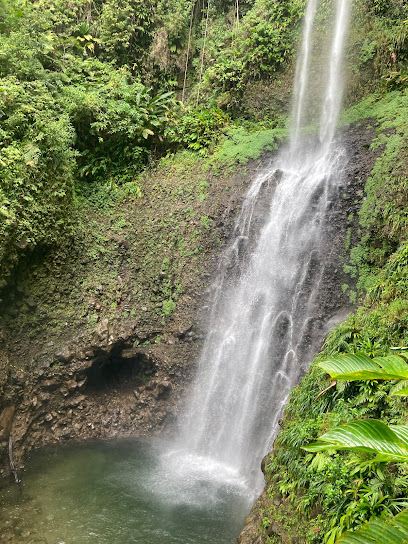
Champagne Beach
Swim in warm, champagne-like bubbles amidst vibrant marine life at Dominica's unique Champagne Beach, a top Caribbean snorkeling and diving destination.
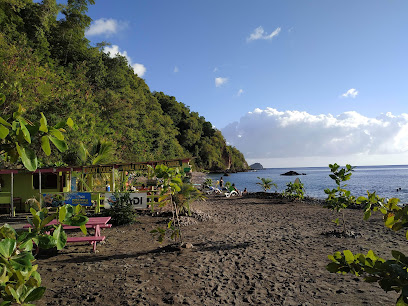
Unmissable attractions to see
Number One Beach
Experience the serene beauty and vibrant atmosphere of Number One Beach, the ultimate tropical escape in the Dominican Republic.
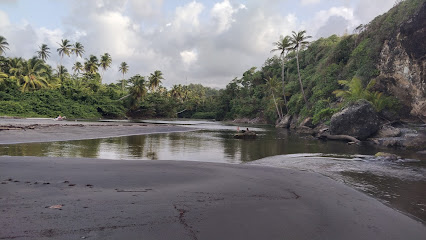
Turtle Beach
Discover the tranquil beauty of Turtle Beach, a perfect tropical getaway in Woodford Hill, offering pristine sands and vibrant marine life.
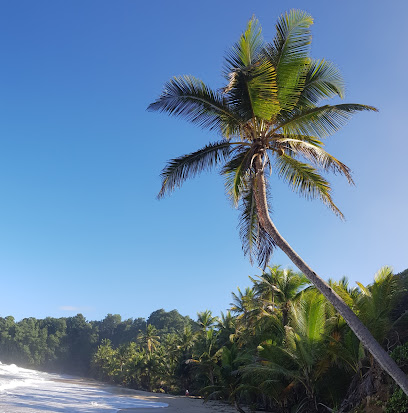
Thibaud park
Explore the tranquil beauty of Thibaud Park in Dominica, a perfect retreat for nature lovers and a must-visit for every traveler.
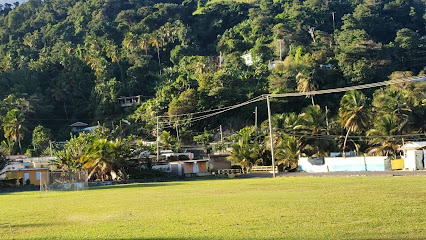
Essential places to dine
Purple Turtle Beach Club
Discover culinary delights and breathtaking views at Purple Turtle Beach Club in Portsmouth's serene Lagoon area.
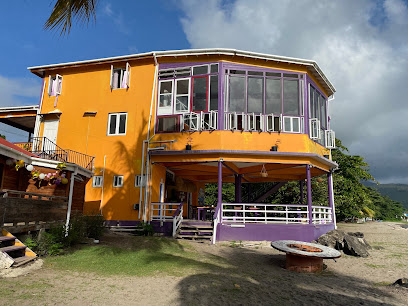
Chez Wen Cuisine
Experience authentic Caribbean seafood delights at Chez Wen Cuisine in scenic Scott's Head, Dominica.
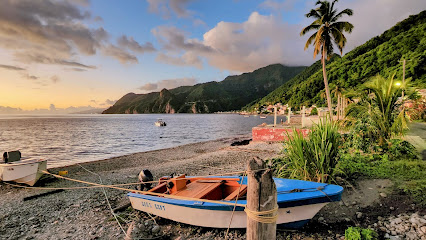
Coral Reef Bar & Restaurant
Experience authentic Dominican cuisine with stunning ocean views at Coral Reef Bar & Restaurant in beautiful Calibishie.
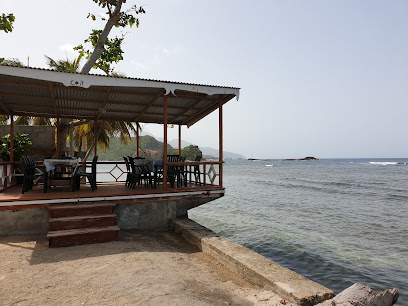
Hi Rise Beach Bar
Discover vibrant flavors and stunning views at Hi Rise Beach Bar in Roseau - your ultimate Caribbean escape.
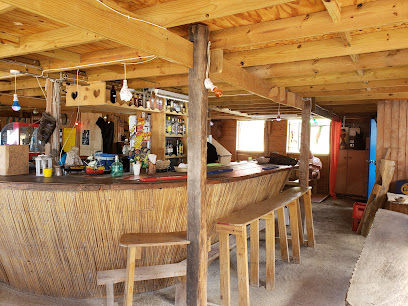
Batibou Beach
Experience the serene beauty of Batibou Beach in Dominica – a perfect blend of relaxation and adventure awaits you on this tropical paradise.
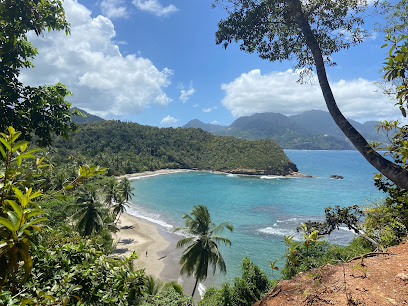
The Great Old House
Experience the vibrant Caribbean cuisine at The Great Old House in Roseau - where every meal tells a story.
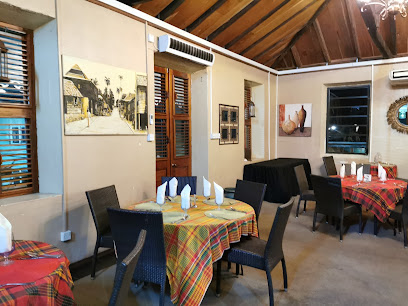
Zeb Zepis Bistro
Discover culinary excellence at Zeb Zepis Bistro - where authentic French flavors meet breathtaking Caribbean landscapes.
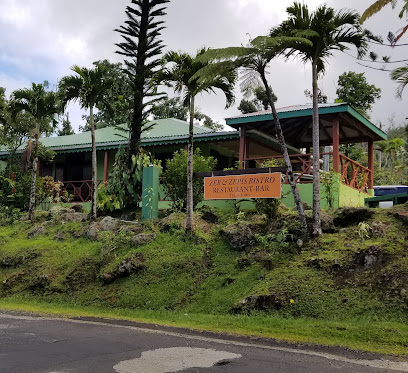
Islet View Restaurant & Bar
Experience breathtaking views and delightful cuisine at Islet View Restaurant & Bar in Castle Bruce.
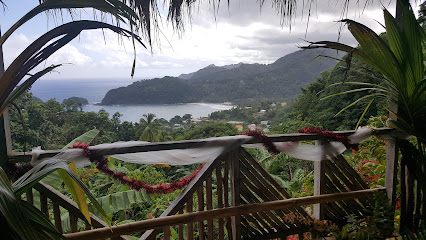
Pagua Bay Bar & Grill
Experience the best of American cuisine infused with Caribbean flavors at Pagua Bay Bar & Grill in Marigot.
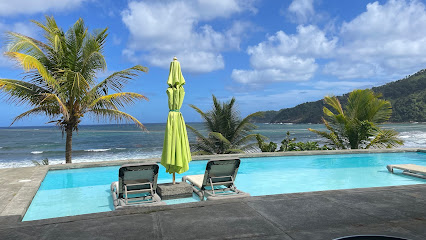
Unique seaview restaurant
Discover culinary delights amidst breathtaking ocean views at Calibishie's Unique Seaview Restaurant.
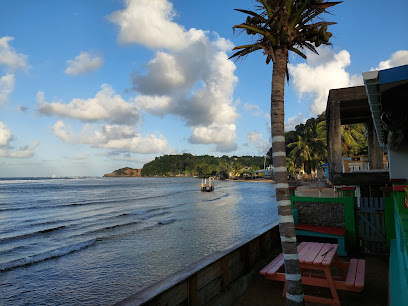
madiba beach café
Discover culinary delights at Madiba Beach Café in Portsmouth – where every meal comes with breathtaking ocean views.
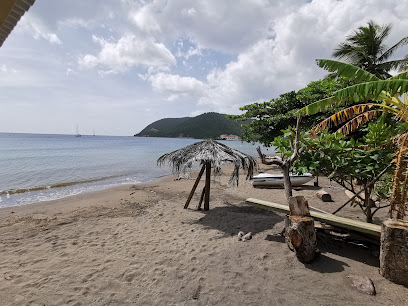
Pearl's Cuisine
Discover the authentic taste of Dominica at Pearl's Cuisine – where every dish tells a story.
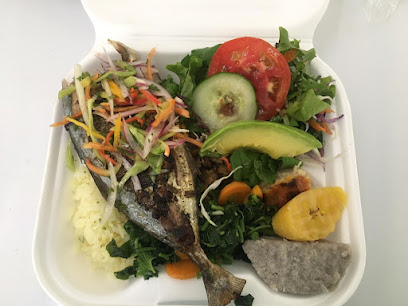
Bell Hall Beach Spot
Experience family-friendly fun at Bell Hall Beach Spot, where stunning scenery meets vibrant local culture on the beautiful shores of Portsmouth.
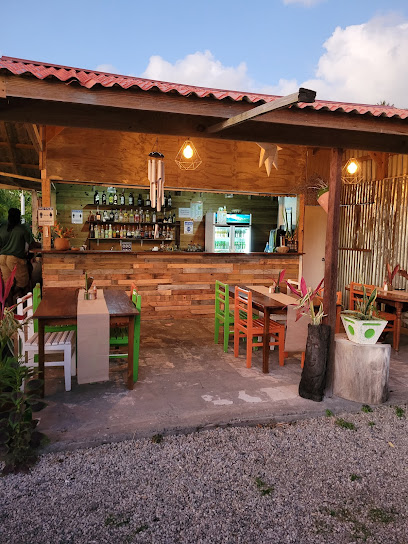
Iguana Café
Experience authentic Caribbean seafood at Iguana Café in Portsmouth - where every dish tells a story of flavor and tradition.
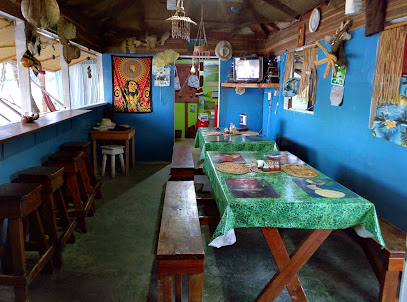
Calabash Restaurant at Jungle Bay
Experience authentic Caribbean dining at Calabash Restaurant, where every meal tells a story of local flavors and sustainable practices.
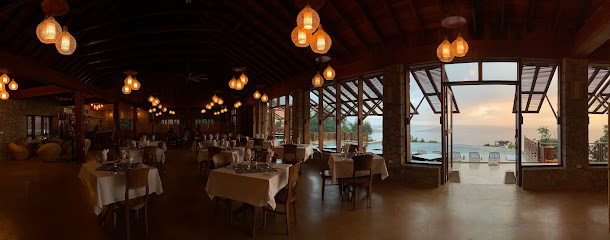
Markets, malls and hidden boutiques
Jungle Bay Dominica
Experience the perfect getaway at Jungle Bay Dominica, where luxury meets nature in a tranquil boutique resort setting.
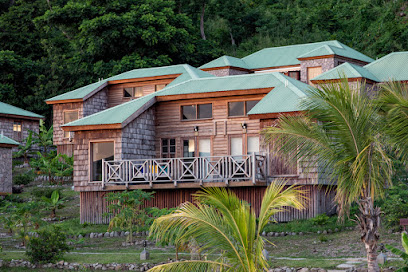
Batibou Beach
Discover the tranquility of Batibou Beach, a hidden paradise in Dominica with stunning views and vibrant marine life.
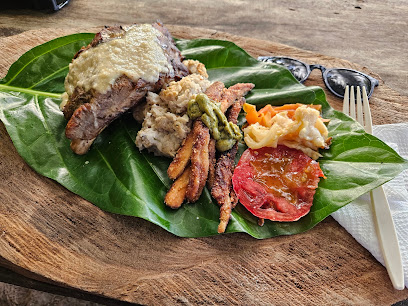
Mams
Discover the vibrant flavors of Dominica at Mams Grocery Store, where local culture and culinary delights meet in Massacre.

The Gulf
Explore The Gulf in Wesley, Dominica - your go-to grocery store for local flavors and fresh produce in a friendly Caribbean atmosphere.
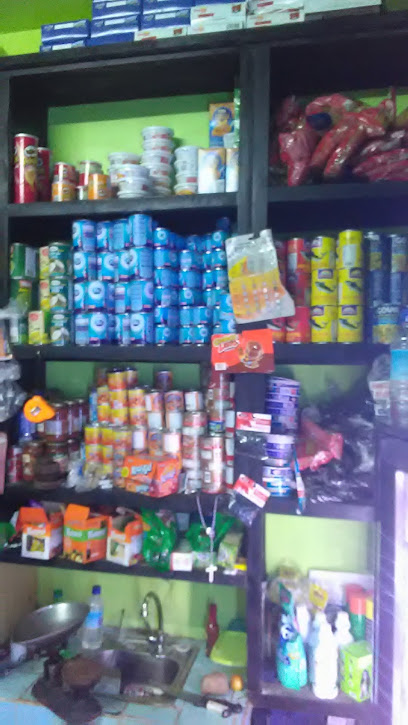
Home'n Tools
Explore Home'n Tools in Mahaut for all your DIY needs, from home decor to gardening supplies, and ignite your creativity.
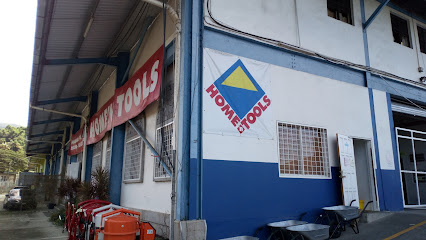
slim's mini mart
Discover the charm of Slim's Mini Mart in Wesley, Roseau, where convenience meets local culture for an unforgettable shopping experience.

Dblush Copy Center
Discover Dblush Copy Center in Portsmouth - the ideal print shop for tourists and locals, offering quality prints and exceptional service.

Farmacy
Discover Farmacy in Pont Cassé for fresh local produce and essential groceries, a perfect stop for tourists exploring the vibrant life of Dominica.
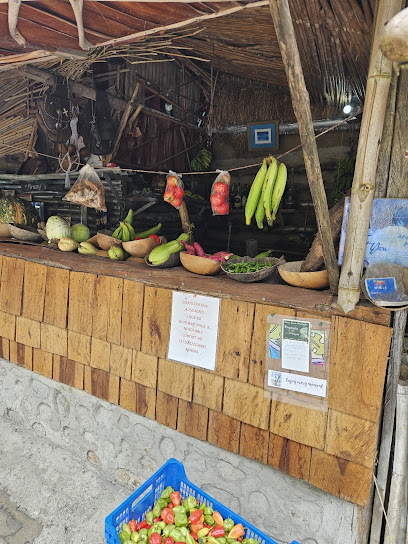
Sea Breeze Mini Mart and Bar
Discover the charm of Sea Breeze Mini Mart and Bar, where local groceries meet refreshing drinks in beautiful Anse De Mai.
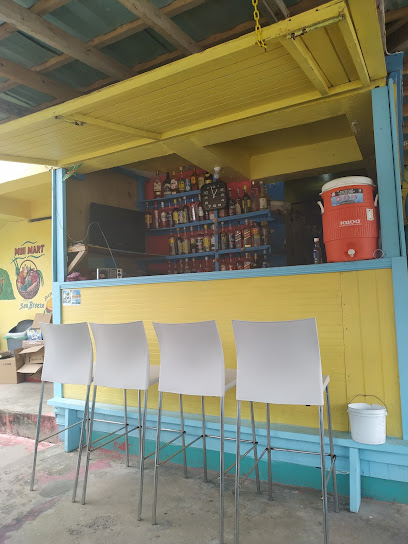
A & A Low Price Center
Discover local products and essentials at A & A Low Price Center in Calibishie, your go-to supermarket for an authentic Dominican experience.
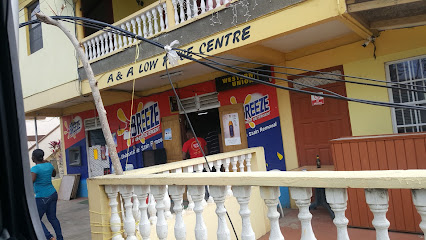
Duty Free Emporium
Discover luxury shopping at its best at the Duty Free Emporium in Roseau, offering exclusive products and local treasures at unbeatable prices.
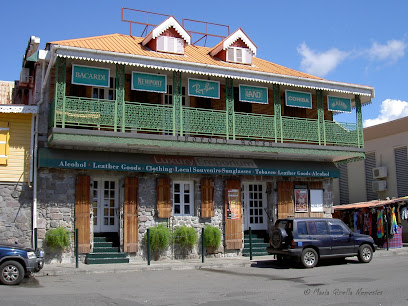
Beach Avenue, Indian River, Dominica
Discover unique clothing and accessories on Beach Avenue in Indian River, Dominica, while soaking in the stunning coastal beauty.
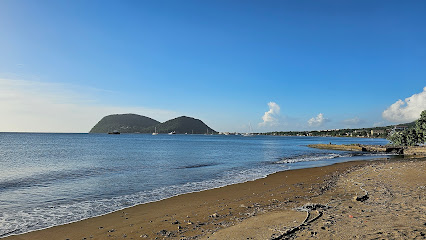
Buzz Enterprise Ltd
Explore Buzz Enterprise Ltd in Wesley for top-notch hardware supplies and expert advice to elevate your DIY projects.

Majic Mart
Explore Majic Mart in Mahaut for a delightful selection of local produce, snacks, and essentials in a welcoming grocery store atmosphere.

RAAS Fabric & Things
Explore a vibrant selection of fabrics at RAAS Fabric & Things in Portsmouth, a must-visit for crafters and textile lovers.
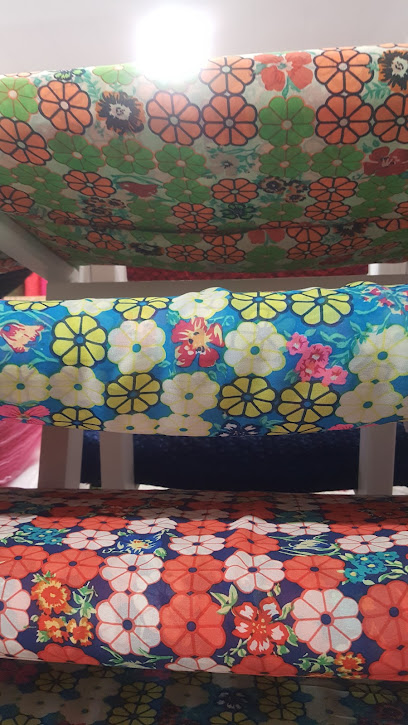
Essential bars & hidden hideouts
Coral Reef Bar & Restaurant
Discover the flavors of the Caribbean at Coral Reef Bar & Restaurant in Calibishie, where fresh seafood meets stunning ocean views.
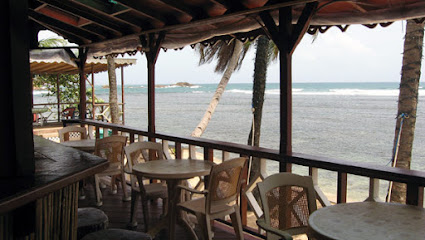
Unique seaview restaurant
Experience the best of Caribbean cuisine with breathtaking ocean views at the Unique Seaview Restaurant in Calibishie.
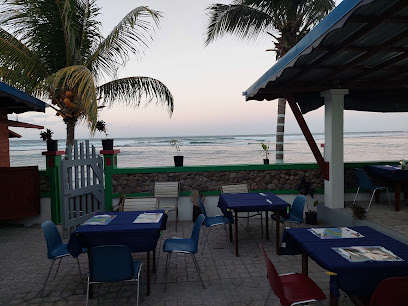
Kool Breeze Bar
Experience the vibrant atmosphere and refreshing drinks at Kool Breeze Bar in Marigot, a perfect tropical retreat for tourists.
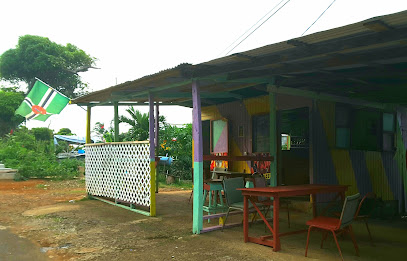
Reef Bar
Experience the vibrant atmosphere of Reef Bar in Toucari, a must-visit destination for refreshing cocktails and local culture.
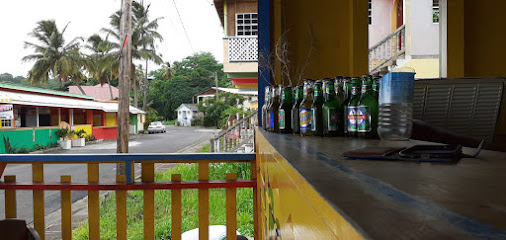
Voxy's Bar and Grill
Experience the vibrant flavors of the Caribbean at Voxy's Bar and Grill in Bense, a culinary delight for all tourists.

Trevy's Place
Explore the flavors of Thibaud at Trevy's Place, where grilled delights and local cuisine come together in a charming atmosphere.
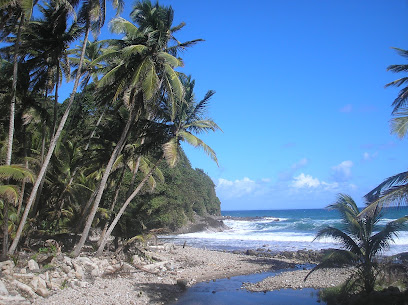
Da's Bar
Discover the vibrant flavors of Dominican cuisine at Da's Bar in Anse De Mai, where every meal is a celebration of local culture.
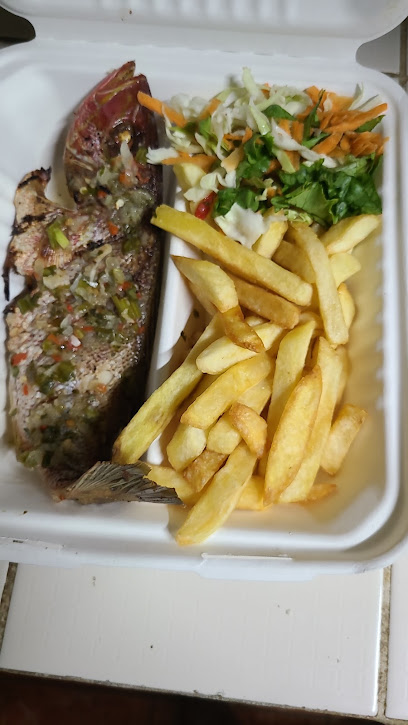
Zartwap!
Discover the essence of local cuisine at Zartwap!, where grilled delights and a cozy ambiance await in Penville.
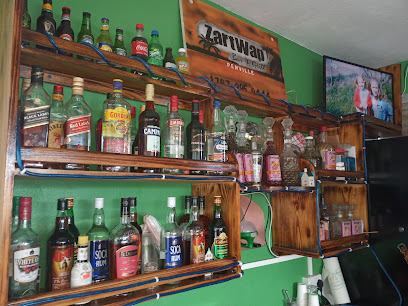
Jannoy's Kreations
Discover the vibrant atmosphere and local flavors at Jannoy's Kreations, a must-visit bar in Penville, perfect for relaxation and socializing.

Nets Of Reef Restaurant and Bar (Formerly Rainbow Restaurant)- Calibishie
Experience the best of Caribbean cuisine at Nets Of Reef Restaurant and Bar in Calibishie, where every meal is a celebration of flavor and beauty.
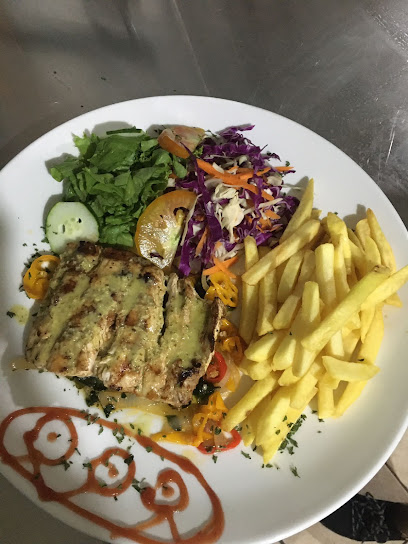
The Hot Spot
Discover vibrant nightlife at The Hot Spot in Calibishie, where locals and tourists gather for refreshing drinks and lively entertainment.
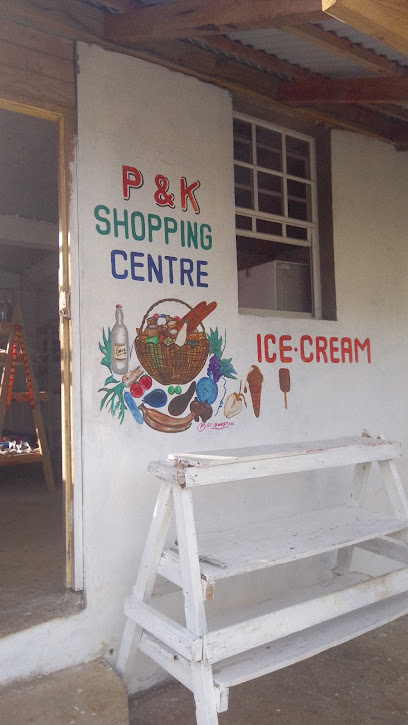
GIANT'S BAR
Experience the lively Caribbean nightlife at Giant's Bar in Penville, where every sip brings you closer to local culture and unforgettable memories.
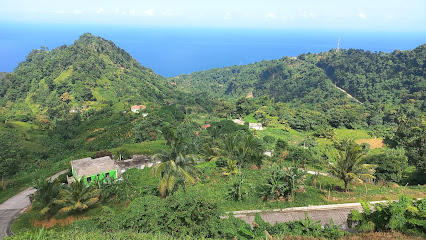
Floating Anchor Bar
Experience the vibrant atmosphere and stunning views at Floating Anchor Bar, where relaxation meets local Caribbean charm in Colihaut.

Brigidy Bar and Grill
Experience authentic Caribbean dining at Brigidy Bar and Grill in Paix Bouche, where fresh ingredients and vibrant flavors come together.
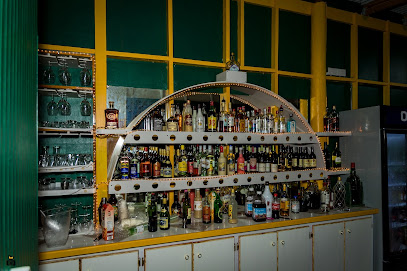
Local Phrases about Batibou Beach
-
- HelloBonjou
[bon-zhoo] - GoodbyeOrevwa
[oh-rev-wah] - YesWi
[wee] - NoNon
[nohn] - Please/You're welcomeTanpri
[tahn-pree] - Thank youMèsi
[meh-see] - Excuse me/SorryEskiz mwen
[es-keez mwen] - How are you?Kijan ou ye?
[kee-jahn oo yeh] - Fine. And you?Byen. E ou menm?
[byehn. ay oo mehn] - Do you speak English?Eske ou pale angle?
[es-keh oo pahl ahn-glay] - I don't understandMwen pa konprann
[mwen pah kohn-prahn]
- HelloBonjou
-
- I'd like to see the menu, pleaseMwen ta renmen we meni a, tanpri
[mwen tah rehn-mehn weh meh-nee ah, tahn-pree] - I don't eat meatMwen pa manje vyann
[mwen pah mahn-jay vee-ahn] - Cheers!Santé!
[sahn-tay] - I would like to pay, pleaseMwen ta renmen peye, tanpri
[mwen tah rehn-mehn pay-yeh, tahn-pree]
- I'd like to see the menu, pleaseMwen ta renmen we meni a, tanpri
-
- Help!Sekou!
[seh-koo] - Go away!Ale!
[ah-leh] - Call the Police!Rele la Polis!
[reh-leh lah poh-leece] - Call a doctor!Rele yon doktè!
[reh-leh yohn dohk-teh] - I'm lostMwen pedi
[mwen peh-dee] - I'm illMwen malad
[mwen mah-lahd]
- Help!Sekou!
-
- I'd like to buy...Mwen ta renmen achte...
[mwen tah rehn-mehn ahh-shteh] - I'm just lookingMwen jis gade
[mwen zhees gah-day] - How much is it?Konbyen li ye?
[kohn-byen lee yeh] - That's too expensiveSa twò chè
[sah twah sheh] - Can you lower the price?Eske ou ka ba pri la?
[es-keh oo kah bah pree lah]
- I'd like to buy...Mwen ta renmen achte...
-
- What time is it?Ki lè li ye?
[kee leh lee yeh] - It's one o'clockLi senkè
[lee sahn-kehh] - Half past (10)Demi (10)
[deh-mee (dix)] - MorningMaten
[mah-tehn] - AfternoonApremidi
[ah-preh-mee-dee] - EveningSwadé
[swah-deh] - YesterdayYè
[yeh] - TodayJodi a
[joh-dee ah] - TomorrowDemen
[deh-mehn] - 11
[uhn] - 22
[de] - 33
[twah] - 44
[kat] - 55
[sank] - 66
[sis] - 77
[sèt] - 88
[wit] - 99
[nèf] - 1010
[dis]
- What time is it?Ki lè li ye?
-
- Where's a/the...?Ki kote yon/la...?
[kee koh-teh yohn/lah] - What's the address?Kisa adres la?
[kee-sah ah-dreh lah] - Can you show me (on the map)?Eske ou ka montre mwen (sou kat la)?
[es-keh oo kah mohn-tray mwen (soo kaht lah)] - When's the next (bus)?Ki lè pwochen (bis la)?
[kee leh pwosh-ehn (bees lah)] - A ticket (to ....)Yon tikè (pou ....)
[yohn tee-keh (poo)]
- Where's a/the...?Ki kote yon/la...?
History of Batibou Beach
-
Before European contact, the indigenous Kalinago people inhabited the area around Batibou Beach. Known for their seafaring skills and vibrant culture, the Kalinago left an indelible mark on the region. The beach and surrounding areas were often used as landing sites and fishing spots, integral to their daily lives and survival.
-
In the 17th century, European powers vied for control of Dominica. The French and British both laid claim to the island, with the French establishing small settlements along the coast. Batibou Beach, with its strategic location and natural beauty, became a focal point during these colonial skirmishes.
-
During the 18th and 19th centuries, Dominica's fertile lands were transformed into plantations, primarily for sugar and coffee. Batibou Beach and its surrounding areas were no exception. The beach served as a minor port for the transport of goods and slaves, contributing to the island's economy and shaping its social structure.
-
The secluded coves and dense forests around Batibou Beach made it a favored hideaway for pirates during the Golden Age of Piracy. Stories of hidden treasures and pirate ships abound, adding a layer of mystique and adventure to the beach's history.
-
During World War II, Dominica played a strategic role in the Atlantic theater. Batibou Beach was occasionally used by Allied forces for training exercises and as a secluded meeting point. The remnants of makeshift camps and wartime relics can sometimes be found in the area.
-
In recent decades, Batibou Beach has transformed into a popular tourist destination while still retaining its natural charm. Efforts have been made to preserve the environment and honor the beach's rich history. Local initiatives aim to educate visitors about the cultural and historical significance of Batibou Beach.
-
Batibou Beach is not just a natural wonder but also a cultural hub. Various local festivals and events are held on its shores, celebrating Dominica's vibrant culture and traditions. These events often include music, dance, and traditional food, offering a glimpse into the island's rich cultural heritage.
Batibou Beach Essentials
-
Batibou Beach is located on the northeastern coast of Dominica. The nearest major airport is Douglas-Charles Airport (DOM), which is about a 30-minute drive from the beach. From the airport, you can hire a taxi or rent a car to reach Batibou Beach. If you are coming from the capital, Roseau, the drive will take approximately 1.5 hours. The route is well-signposted, and the scenic drive offers picturesque views of Dominica's lush landscapes.
-
While Dominica does not have an extensive public transport system, taxis and rental cars are readily available. Taxis can be hired for both short trips and full-day excursions, though it is advisable to agree on a fare before starting your journey. Renting a car gives you the flexibility to explore the island at your own pace. Note that driving is on the left side of the road. Some visitors also opt for guided tours, which can be arranged through local tour operators.
-
The official currency of Dominica is the Eastern Caribbean Dollar (XCD). U.S. dollars are widely accepted, but it is advisable to carry some local currency for smaller purchases. Credit cards are accepted in most hotels, restaurants, and larger shops, but some smaller vendors and local markets may only take cash. ATMs are available in larger towns, so it is wise to withdraw sufficient cash when you have the opportunity.
-
Batibou Beach and its surrounding areas are generally safe for tourists. However, like any destination, it is important to take standard precautions. Avoid leaving valuables unattended on the beach. While Dominica has a relatively low crime rate, it is still advisable to be cautious, especially in less populated areas. Avoid walking alone at night and be aware of your surroundings.
-
In case of emergency, dial 999 for immediate assistance. The nearest medical facility is the Marigot Hospital, about 20 minutes from Batibou Beach. For more serious medical issues, Princess Margaret Hospital in Roseau offers comprehensive services. It is recommended to have travel insurance that covers medical emergencies. Local pharmacies can provide over-the-counter medications for minor health concerns.
-
Fashion: Do wear light, breathable clothing suitable for a tropical climate. Don't forget to bring swimwear and sun protection. Religion: Do respect local customs and traditions. Dominica is predominantly Christian, and modest dress is appreciated when visiting religious sites. Public Transport: Do be patient as public transport can be infrequent. Don't rely solely on public transport for getting around. Greetings: Do greet people politely; a simple 'Good morning' or 'Good afternoon' is courteous. Eating & Drinking: Do try local dishes like fish broth and callaloo soup. Don't refuse food when offered by locals, as it is considered impolite.
-
To experience Batibou Beach like a local, consider visiting during the early morning or late afternoon when the beach is less crowded. Bring your own picnic and enjoy a meal under the shade of palm trees. Engage with local vendors and try fresh coconut water or local fruits. For a unique experience, ask about the history of the area from local guides or residents, who are often happy to share stories and tips.
Nearby Cities to Batibou Beach
-
Things To Do in Mahaut
-
Things To Do in Roseau
-
Things To Do in La Plaine
-
Things To Do in Woodlands
-
Things To Do in English Harbour
-
Things To Do in Falmouth
-
Things To Do in Freetown
-
Things To Do in Liberta
-
Things To Do in All Saints
-
Things To Do in Codrington
-
Things To Do in Bolands
-
Things To Do in Jolly Harbour
-
Things To Do in Rodney Bay
-
Things To Do in Gros Islet
-
Things To Do in St. John's







